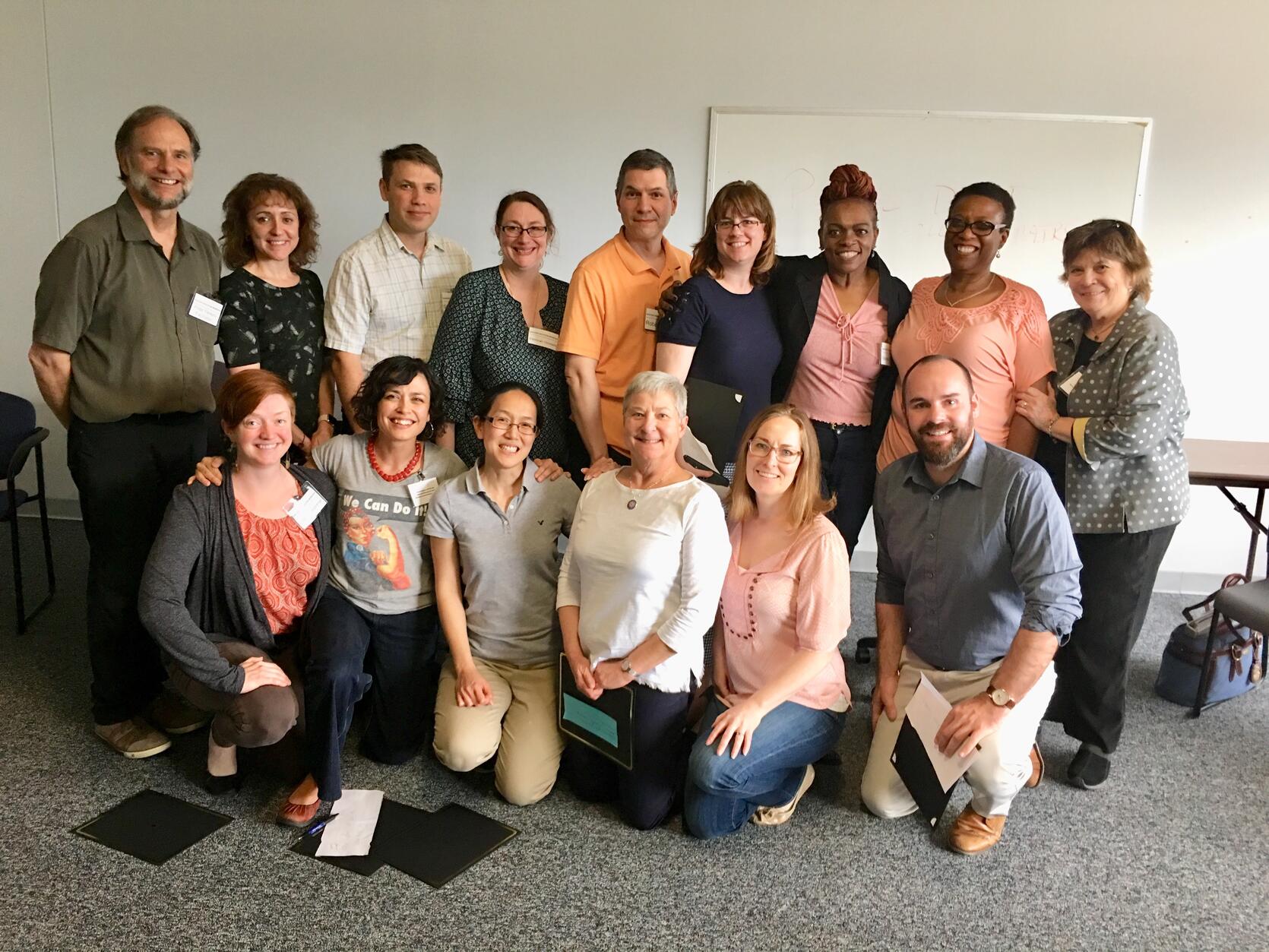- Massachusetts Department of Mental Health

“Dialogue Education is a game changer— 'no' to dull, top down approaches to training and 'yes' to dynamic, learner-centered events.” - Margot T.
“I thoroughly enjoyed the emphasis on the experience of building relationships based on mutual learning, listening, and affirmation.” - Val C.
“Dialogue Education and its core principles can transform the way facilitation and curriculum is approached leading to a learner-centered focus that recognizes the vast talent and experience of the DMH workforce.” - Jessica H.
“This is one of the greatest investments that the DMH organization has ever made!” - Valerie B.
13 DMH staff members from the Learning & Development team and other areas within the Department, and one staff member from MassHealth became the 2nd class to successfully complete the Introduction to Dialogue Education (Dialogue Ed.) on May 3, 2018 (Read about the first class to complete this course).
Dialogue Ed. ensures that transformative, lasting learning takes place by shifting the focus of education from what the teacher says to what the learner does, from learner passivity to learners as active participants in the dialogue that leads to learning. The key principles of Dialogue Education are as follows:
- Dialogue - This primary principle of Dialogue Education positions dialogue as the means to the end result of learning, rather than as an end in itself. The principle assumes that any adult has enough life experience to converse with any teacher on any subject and that learners learn best when content relates to their experience. Thus, two way, open dialogue needs to be a part of all learning activities.
- Learners as Subjects or Decision makers - Learners must be seen as subjects acting upon content instead of objects to be acted upon or to receive content. This principle may be demonstrated by following the guideline:
- "Don't ever do what the learner can do; don't ever decide what the learner can decide." (Vella, 2002:16).
- Achievement-Based Objectives - Objectives that are achievement-based, describe what learners will do with the content (What) in an observable way.
- Learning Tasks - Learning tasks are structured as open questions (i.e. questions with no set, "right" answer) asked of learners, inviting them to interact with the content in some way and leading to open dialogue between learner and teacher and amongst learners. These tasks determine how learners will achieve the objectives (What for) that help them to learn the necessary content (What) in order to arrive at the outlined purpose (Why).
Learn more about Dialogue Education on the Global Learning Partners website.
Participants in the learning experience took part in an immersive session which tasked learners with partnering up to design and facilitate their own 30 minute dialogue. The entire session from start to finish was just four days. By utilizing the concepts of Dialogue Education, all participants were able to successfully design and facilitate their own sessions. Furthermore, immersive nature of the session forged partnerships and friendships that will enable everyone who participated to utilize the principles of Dialogue Education in their own professional work and personal lives. This team of participants joins nearly 20 more who previously completed Dialogue Education, thus further incorporating the approach into the learning, development, and communication strategy of the Department.
